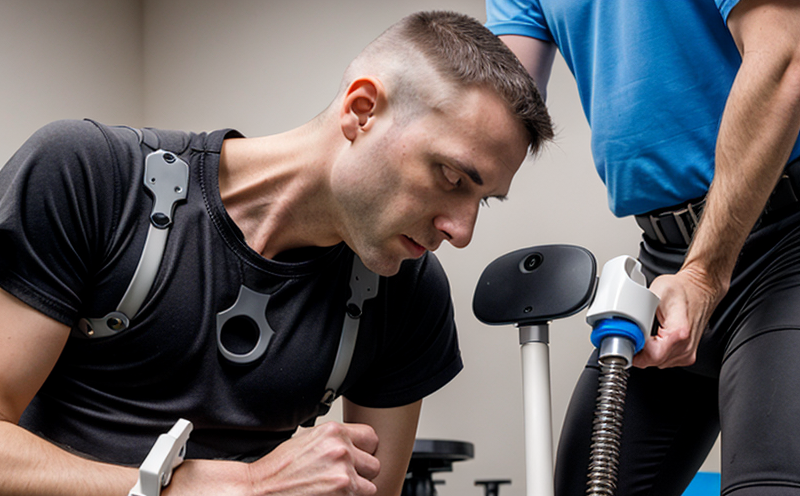Orthopedic & Prosthetic Device Testing
In today’s rapidly evolving medical device industry, ensuring that orthopedic and prosthetic devices meet stringent safety and efficacy standards is paramount. These devices play a critical role in enhancing the quality of life for millions worldwide by providing solutions to a variety of musculoskeletal conditions.
The testing process encompasses numerous stages, each designed to evaluate different aspects of these devices, from biocompatibility to mechanical performance. This ensures that every device is safe and effective before it reaches the market. At Eurolab, our team of highly skilled professionals employs cutting-edge technology and follows international standards such as ISO 10993 for biocompatibility testing and ASTM F2687 for prosthetic joints.
The scope of orthopedic & prosthetic device testing at Eurolab includes a comprehensive range of tests that are critical to the development, manufacturing, and regulatory compliance of these devices. Our expertise lies in providing detailed reports on mechanical performance, biocompatibility, sterilization methods, and more. These reports serve as crucial tools for quality managers, R&D engineers, and compliance officers, ensuring that each device meets not only legal requirements but also exceeds customer expectations.
Our testing facilities are equipped with state-of-the-art instrumentation designed specifically for the rigorous demands of orthopedic & prosthetic devices. This includes specialized machines capable of simulating real-world conditions under which these devices will be used, ensuring accurate and reliable results. Our team uses a combination of manual techniques and automated processes to ensure precision in every step of the testing process.
Biocompatibility is one of the most critical aspects of orthopedic & prosthetic device testing. We follow ISO 10993 standards, which cover a wide array of tests designed to evaluate how a medical device interacts with biological systems. This includes in vitro cytotoxicity tests, genotoxicity assessments, and irritation and sensitization studies. For mechanical performance testing, we adhere to ASTM F2687, which provides guidelines for the testing of prosthetic joints.
Another crucial aspect is sterilization methods. Orthopedic & prosthetic devices must be sterile to prevent infections during surgical procedures. We evaluate various sterilization techniques, including autoclaving and ethylene oxide gas sterilization, ensuring that each device remains safe and effective post-sterilization.
- Biocompatibility testing: ISO 10993
- Mechanical performance testing: ASTM F2687
Our commitment to quality is reflected in our adherence to international standards and our continuous efforts to stay at the forefront of technological advancements. By partnering with Eurolab, you can ensure that your orthopedic & prosthetic devices meet not only regulatory requirements but also exceed customer expectations.
Eurolab Advantages
At Eurolab, we understand the critical role that quality and reliability play in the success of orthopedic & prosthetic devices. Our advantages are numerous and include:
- Comprehensive Testing Services: We offer a full range of testing services tailored to meet your specific needs.
- Expertise and Experience: Our team consists of highly skilled professionals with extensive experience in the medical device industry.
- State-of-the-Art Facilities: Equipped with cutting-edge technology, our facilities ensure accurate and reliable results.
- Compliance with International Standards: We follow international standards such as ISO 10993 and ASTM F2687 to ensure regulatory compliance.
We pride ourselves on providing exceptional service, ensuring that every device we test meets the highest quality standards. By partnering with Eurolab, you can rest assured that your orthopedic & prosthetic devices will be tested with the utmost precision and care.
Quality and Reliability Assurance
The importance of quality and reliability in medical device testing cannot be overstated. Ensuring that these devices are safe, effective, and consistent is critical to maintaining patient trust and ensuring regulatory compliance.
- Biocompatibility: Testing for biocompatibility ensures that the materials used in orthopedic & prosthetic devices do not cause adverse reactions in the human body. This includes cytotoxicity, genotoxicity, irritation, and sensitization tests.
- Mechanical Performance: Evaluating mechanical performance is crucial to ensure that these devices can withstand the stress of everyday use without failure. We follow ASTM F2687 for prosthetic joints.
At Eurolab, we employ rigorous testing protocols and advanced instrumentation to provide accurate results. Our team of experts ensures that every test is conducted with precision and care, ensuring the highest level of reliability.
Competitive Advantage and Market Impact
By partnering with Eurolab for orthopedic & prosthetic device testing, you can gain a significant competitive advantage in the market. Our services help ensure that your devices meet or exceed regulatory requirements, which is essential for gaining approval from organizations such as the FDA.
- Regulatory Compliance: Ensuring compliance with international standards helps you navigate complex regulatory landscapes and avoid costly delays.
- Enhanced Reputation: Demonstrating a commitment to quality can enhance your reputation in the industry, leading to increased customer trust and satisfaction.
In addition to regulatory compliance, our services also contribute to your market impact. By ensuring that your devices are safe, effective, and reliable, you can differentiate yourself from competitors and attract more customers. Our detailed reports provide valuable insights into the performance of your devices, enabling you to make data-driven decisions for continuous improvement.





